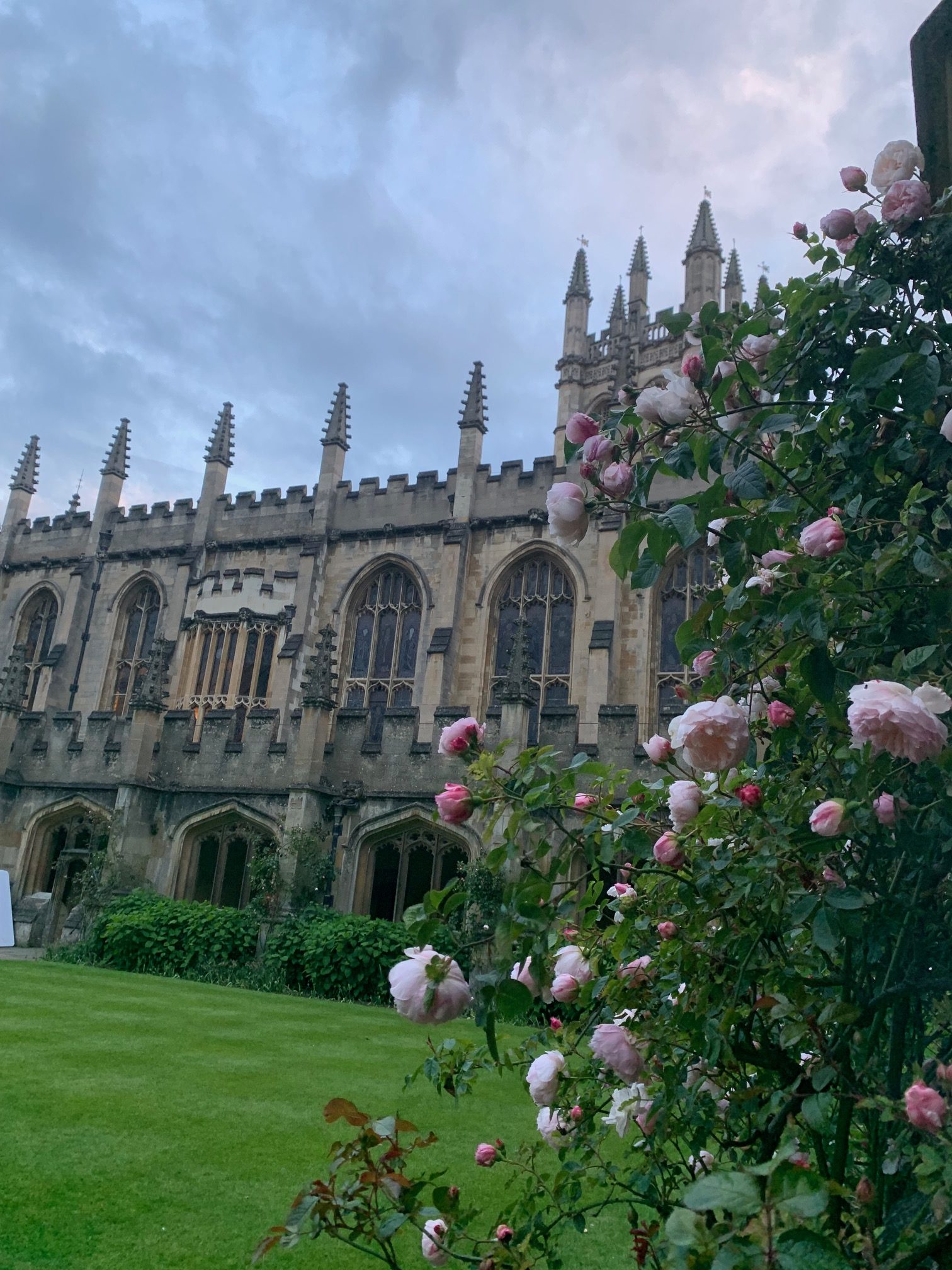My Journey in Academic Philosophy
While the philosophical life might be thought to resemble Aristotle’s vita contemplativa, there is a fair amount of activity inherent in the practice of philosophy. As the cosmopolitan universities of the medieval period suggest, the accumulation of knowledge has an undeniably physical element. People, manuscripts, and ideas transverse and are exchanged in physical spaces. This portion of my webpage is something of a blog-cum-travel journal which chronicles my journey in academic philosophy and emphasizes some of the beautiful physical spaces that have backgrounded and molded my academic interests. A special shout-out is owed to Nicola Polloni (Università degli Studi di Messina) and his rather magnificent Potestas Essendi, on whose website I’ve shamelessly relied for the inspiration for this blog. Fortunately for Nicola, I possess none of his talents for web design.
AMMAN, JORDAN
10 June 2024 – 15 August 2024: I spent summer 2024 in Amman, Jordan as a part of a classical Arabic language intensive program hosted through Qasid Arabic Institute. As advertised, the program was quite intensive with daily course work for 5-6 hours followed by 5-6 hours nightly of homework and independent study (usually conducted at one of Amman’s many storied cafes). The hard work was well rewarded! I’ve left Jordan with a better understanding of the deeper grammatical structure of the language and with a reinvigorated grasp of contemporary Modern Standard Arabic (MSA). A few weekend trips to the Roman ruins of Um Qais and Jerash, along with other historic and natural beauty spots throughout the country also rounded out the summer’s adventures nicely!
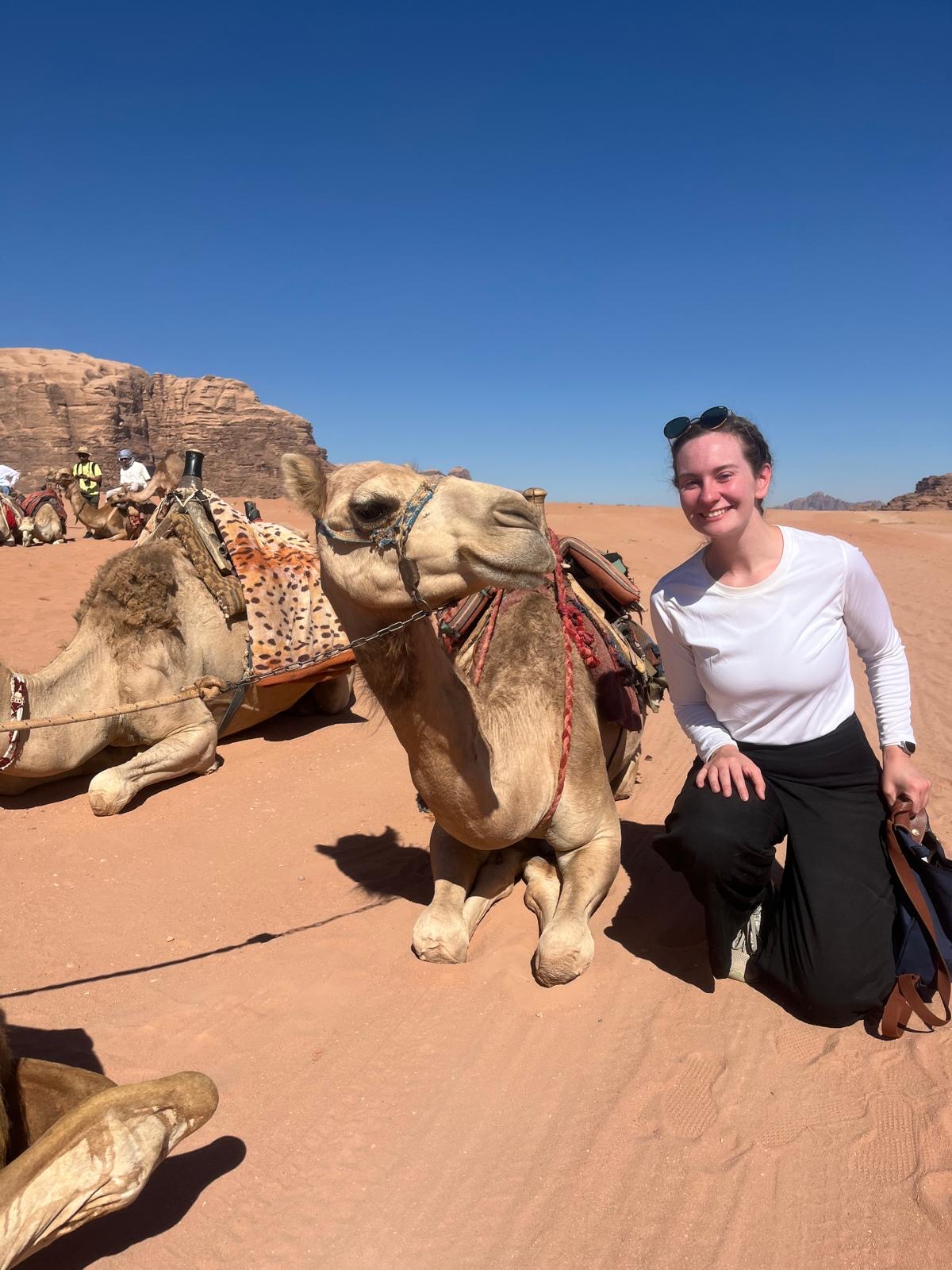
MARQUETTE UNIVERSITY, MILWAUKEE, WI
19 October 2023: Professor Richard Taylor (Marquette University) hosted a ‘mentoring symposium’ at Marquette University for incoming and current graduate students in the American Midwest interested in Islamic and medieval philosophy. I drove up from South Bend with two other Notre Dame students, Bruce and Samantha for the day. We attended his combined seminar (a virtual class hosted between Marquette and KU Leuven) and then in hybrid form met various members of the Aquinas and the Arabs International Working Group (AAIWG) – from senior members well established in their fields, to junior faculty, post-docs, and down to us: current doctoral students. There were some familiar faces from the AAIWG reading group last year, but also plenty of new scholars to meet! Looking forward to my next adventure up to Milwaukee, or hosting some of our new peers in South Bend!
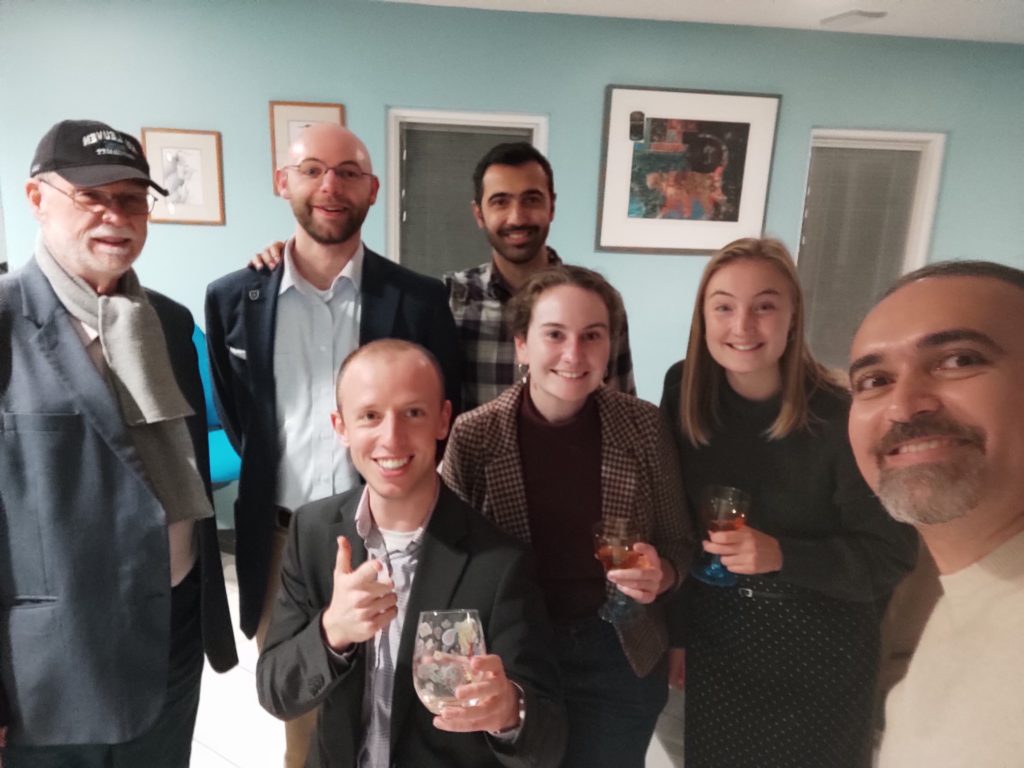
BACK HOME AGAIN IN INDIANA
All roads lead to South Bend (or at least most roads in medieval philosophy do at some point). I’m back at the University of Notre Dame to begin a five-year PhD program. I’m happy to be among familiar faces and excited to meet new colleagues and faculty for the next five or so years – though I hope to continue my journey at conferences abroad and perhaps through language acquisition programs. For now, home is under the dome!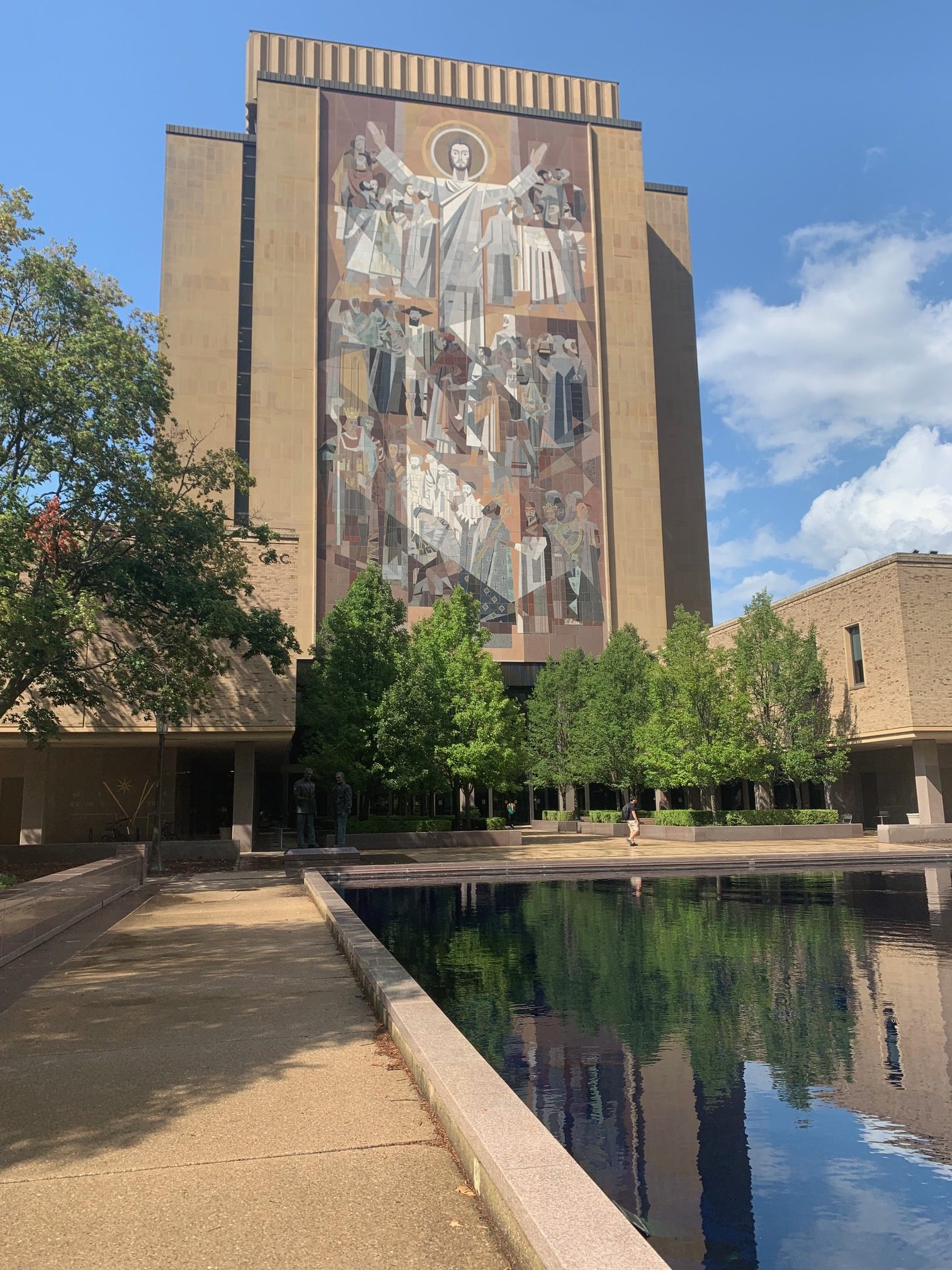
MAGDALEN COLLEGE, UNIVERSITY OF OXFORD
Do fidem: the BPhil is complete at last! Just under two years after submitting my BPhil Thesis, I officially graduated in person at the Sheldonian Theatre in Oxford on Saturday, 6 May 2023. It was a wonderful weekend to return to Oxford and reflect upon all of the philosophical growth I had there, in spite of pandemic disruption. In addition to copious bowing, pomp, and circumstance, I was able to see my thesis supervisor, Cecilia Trifogli, for an in-person farewell ahead of my impending departure to the US.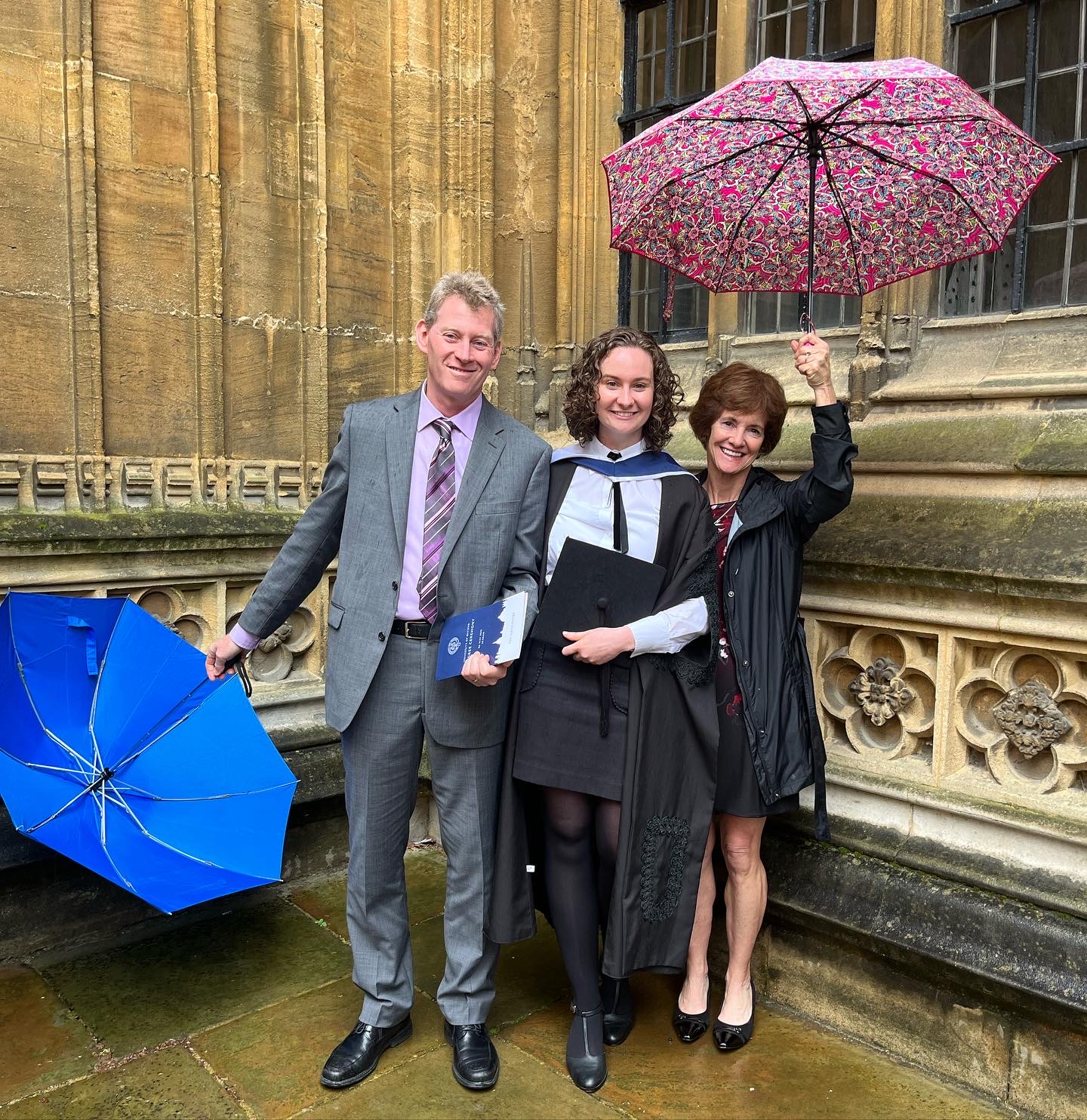
KU LEUVEN, BELGIUM
I’ve been fortunate that I’ve been able to stay ‘looped in’ to the philosophy world despite working full-time. Luckily, the medieval philosophy community is small, but extremely generous and hospitable! Less than two months after my Parisian adventure, I was back in the Chunnel travelling to Leuven, Belgium for a conference on Avicenna hosted by KU Leuven. Professor Andrea Robiglio kindly invited me along, which gave me a chance to enjoy a visit to one of the great centers of study for medieval philosophy in Europe, as well as the opportunity to meet an international bunch of scholars interested in Islamic philosophy, the Galenic medical tradition, and even Second Scholasticism. I’m looking forward to reconnecting with new philosophy friends at conferences (fingers crossed!) in the coming years. 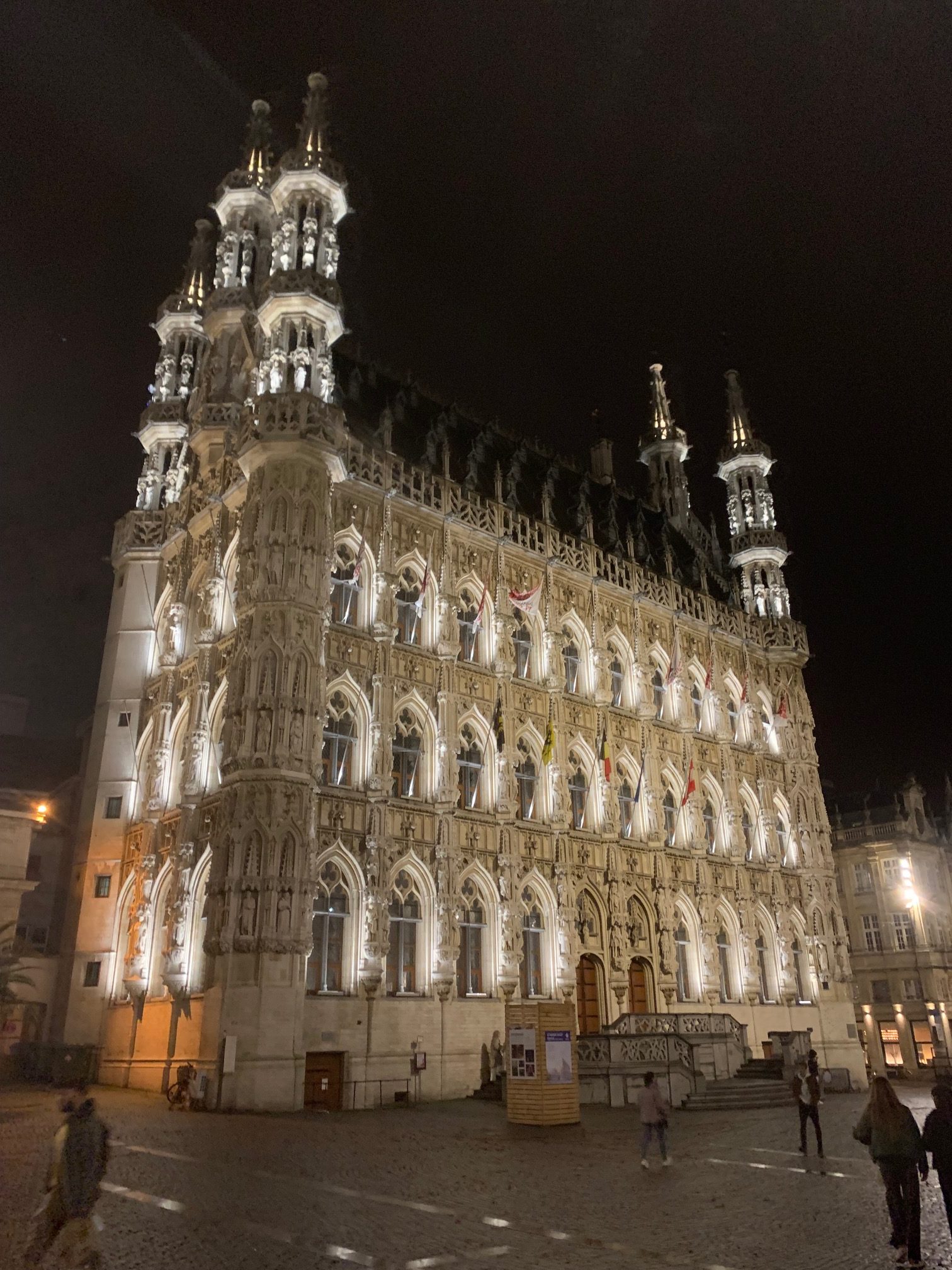
PARIS, FRANCE
And just like that, my first professional conference presentation has come and gone! This past August 2022, I presented a paper on Averroes’ unicity thesis at the annual SIEPM (Société Internationale pour l’Étude de la Philosophie Médiévale) congress in Paris. I was full of nerves – particularly when a very senior classical Islamic philosopher slid into the room moments before the presentation began. I actually found myself enjoying the process of fielding questions from the audience, and I learned that I knew more than I thought I had in the process. There are a lot of practical elements of presenting I’m hoping to hammer out in the coming few years – I speak quickly when I’m nervous, for instance – but I’m pleased to officially have one presentation under my belt. A special thank-you goes out to Richard Taylor for his comments and generosity of time reading my paper both at and after the Congress. A nice meal after in Paris’ XVIIIe arrondissement served as a suitable reward before the Eurostar back to London. 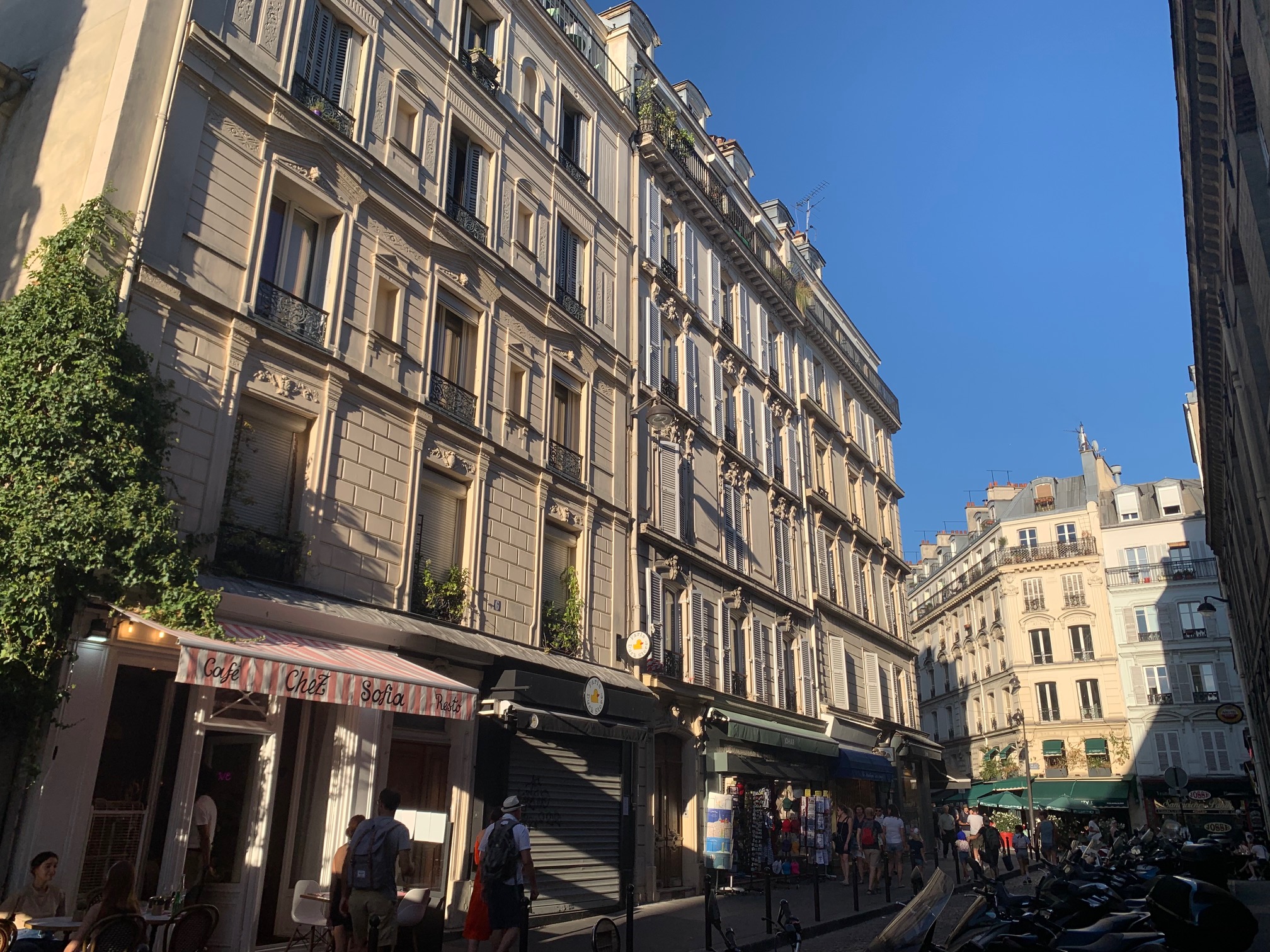
LONDON, UNITED KINGDOM
After the BPhil, I spent 18 months living and working in London. I liked to call myself ‘academic adjacent’ during this time, as I was working for a university and in an academic setting – albeit in student welfare and wellbeing. Whilst working gave me less time to spend developing my further academic interests, the period was really formative for me in terms of learning to structure continual philosophical study for myself around the demands of a job – something I shall have to do as a professional academic to maintain my research and balance my teaching commitments. Additionally, I learned a lot about how pedagogical styles impact student wellbeing and how students’ mental health in turn impacts their ability to study and flourish in the classroom. The benefits of working in a city like London also included attending lots of public philosophy talks at King’s and UCL (with Oxford and Cambridge just a short train ride away) and Charles Burnett’s famed Arabic philosophy reading circle. 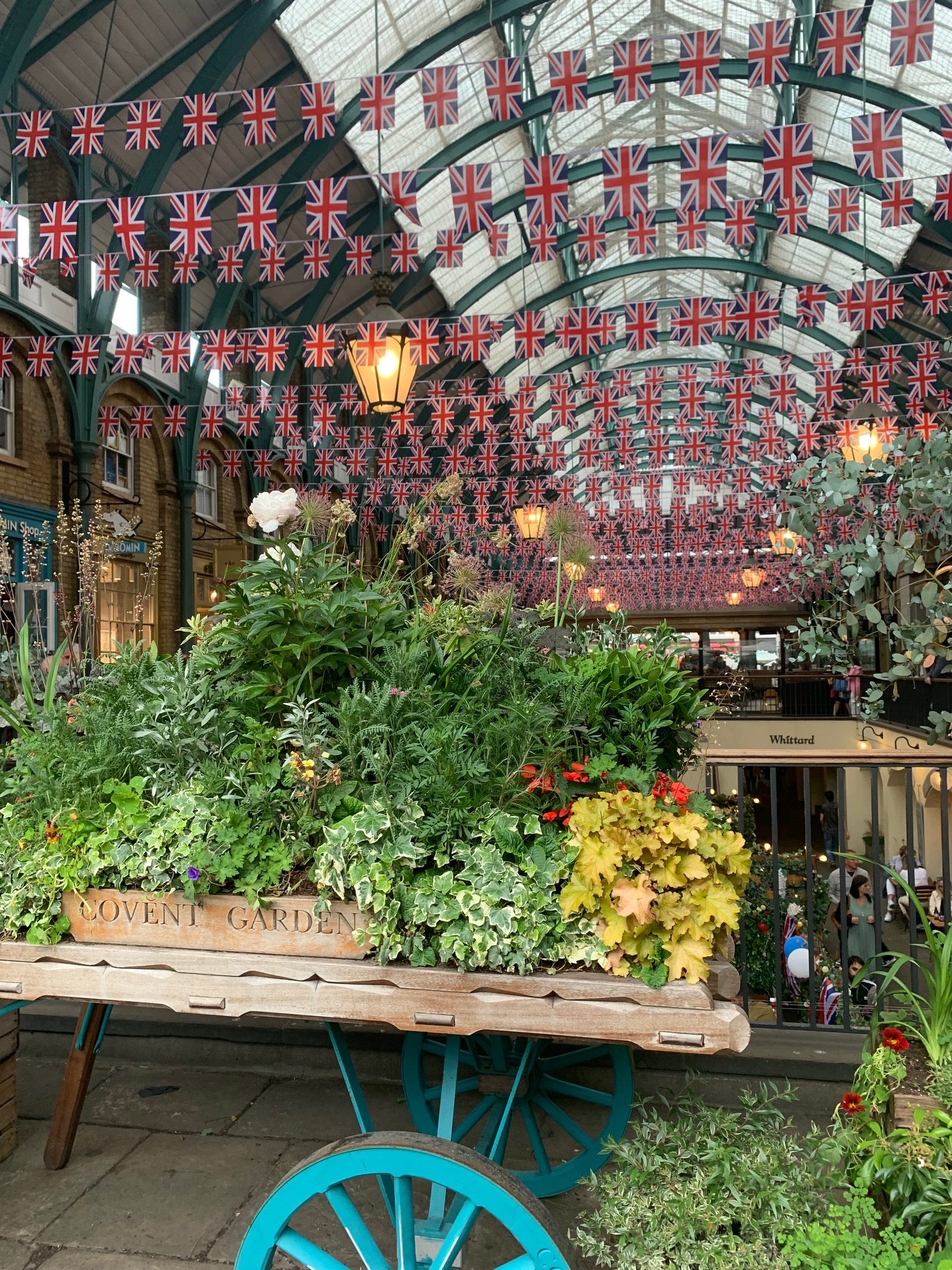
MAGDALEN COLLEGE, OXFORD: THE GRADUATE SCHOOL JOURNEY BEGINS!
The BPhil is meant to be the equivalent of philosophical finishing school for brave, young philosophy undergrads. It fills out the areas of knowledge not covered during your undergraduate years, hammers you into writing shape through exam essays and the thesis, and ships you off a newly minted grad student to an excellent PhD program. My BPhil journey was less direct than others’. I ended up taking an extra term to complete my degree after health complications related to the pandemic, but that extra time came with necessary holistic growth and ensured that I was able to make the most of my thesis work. I loved the writing stage and having the luxury of focusing on just one topic and one project for several months. I felt like I really was in conversation with Thomas Aquinas (on whom I wrote), and at times was able to predict his arguments – just like I can with old friends in seminars. Oxford is a challenging, beautiful, and above all vitally dynamic place. It will always be a second home!